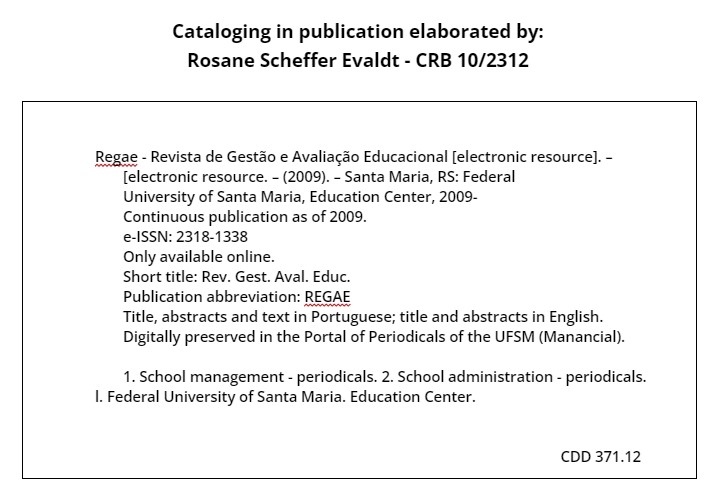|
The Regae: Revista de Gestão e Avaliação Educacional, is maintained by the Universidade Federal de Santa Maria - UFSM.
It has been published in Brazil since 2009, and has as thematic coverage the areas of school administration, school management, educational policies, educational evaluation, and institutional evaluation. Its mission is to constitute a vehicle for the dissemination of studies in the field of education. The target audience is made up of teachers, students, researchers, and leaders of school institutions.
The Regae is hosted in the periodicals portal of the Federal University of Santa Maria at http://periodicos.ufsm.br/regae/index, and is presented in an online format.
The process of submission, evaluation, editing and publication is done through the Electronic Journal Editing System, a licensed translation of the Open Journal Systems - OJS.
The abbreviated title of the periodical, which should be used in bibliographies, footnotes, references and bibliographic strips, is Regae: Rev. Gest. Aval. Educ. |
|



